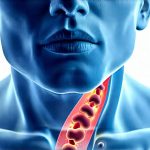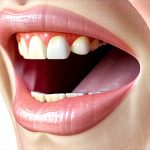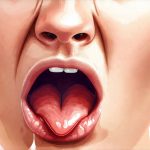Gastroesophageal reflux disease (GERD) is often thought of as simply heartburn, but its impact extends far beyond digestive discomfort. For singers and vocal performers, GERD can be a particularly insidious issue, subtly—or not so subtly—undermining their ability to produce consistent, healthy sound. The physiological processes involved in singing place unique demands on the larynx and surrounding structures, making individuals who sing professionally or seriously more vulnerable to the negative effects of reflux. Understanding how GERD interacts with vocal mechanics is crucial for singers seeking to protect their instrument and maintain peak performance.
The connection lies in the proximity and delicate nature of the vocal mechanism to the esophagus. When stomach acid repeatedly flows back up into the esophagus—the hallmark of GERD—it doesn’t just irritate the esophageal lining. Acid reflux can reach the larynx (voice box), pharynx (throat), and even the nasal passages, causing inflammation, irritation, and a host of vocal problems. This is known as laryngopharyngeal reflux (LPR) which is often associated with gerd with esophagitis but can occur independently – and sometimes presents without typical heartburn symptoms, making it particularly difficult to diagnose in singers. The resulting changes can affect everything from pitch control and resonance to overall vocal quality and stamina, presenting a significant obstacle for those who rely on their voices professionally.
Understanding the Physiological Link Between GERD and Vocal Performance
The intricate mechanics of singing involve precise coordination between breathing, phonation (sound production), resonance, and articulation. Each element relies on healthy tissue within and surrounding the larynx. Acid reflux directly compromises this system. The vocal cords themselves are delicate mucous membranes; repeated exposure to stomach acid can cause swelling, inflammation, and even the formation of nodules or polyps – all detrimental to vocal function.
Furthermore, GERD often leads to increased mucus production as the body attempts to neutralize the acidic environment. This excess mucus can coat the vocal cords, hindering their vibration and resulting in a muffled or strained sound. Singers may find themselves clearing their throats frequently—a temporary relief that ultimately exacerbates the irritation – or experiencing a sensation of globus sensation (the feeling of a lump in the throat) even when no physical obstruction exists. The inflammation caused by reflux can also affect the intrinsic laryngeal muscles, impacting vocal cord closure and leading to breathiness or hoarseness.
The act of singing itself can actually contribute to reflux. Increased abdominal pressure during forceful exhalation – common in many singing styles – can push stomach contents upwards, increasing the likelihood of reflux episodes. Certain vocal techniques, such as belting, which require significant support and pressure, may exacerbate this effect. This creates a vicious cycle: GERD impacts vocal performance, and vocal performance potentially worsens GERD symptoms. Understanding gut health simple can also contribute to overall wellbeing.
Vocal Symptoms Associated with Reflux
Identifying reflux-related vocal problems can be challenging, as the symptoms often mimic those of other vocal issues. It’s important to distinguish between true vocal strain and changes caused by inflammation from acid exposure. Some common signs that GERD might be impacting your singing include:
- Chronic Hoarseness: A persistent raspy or breathy quality to the voice, even when not singing.
- Vocal Fatigue: Experiencing rapid fatigue during or after singing, requiring more recovery time.
- Limited Range: Difficulty accessing higher or lower notes in your vocal range.
- Loss of Resonance: A diminished sense of fullness or projection in your sound.
- Frequent Throat Clearing: A constant need to clear the throat, often without producing any noticeable mucus.
- Globus Sensation: The feeling of a lump in the throat, even when swallowing normally.
It’s vital to remember that these symptoms can be subtle and may not always correlate with typical heartburn. Singers are particularly prone to dismissing these issues as normal vocal wear-and-tear, leading to delayed diagnosis and potentially long-term damage. A comprehensive evaluation by both a gastroenterologist and an otolaryngologist (ENT specialist) is crucial for accurate assessment. If you’re experiencing discomfort, it’s important to understand how GERD affects your voice.
Diagnostic Approaches & Considerations
Diagnosing LPR can be tricky because standard GERD tests don’t always detect it. Traditional methods like pH monitoring often focus on esophageal acidity, which may not reflect the acid reaching the larynx. Several diagnostic tools are used or being developed to better understand reflux’s impact:
- Laryngoscopy: An ENT specialist uses a small camera to visualize the larynx and identify signs of inflammation, swelling, or lesions.
- Ambulatory Reflux Monitoring (ARM): This involves placing a small capsule in the esophagus to measure pH levels over 24-48 hours, providing more detailed information about reflux episodes – including those that don’t reach the esophagus.
- Impedance Monitoring: Measures changes in electrical impedance within the esophagus, detecting both acidic and non-acidic reflux events. This is valuable as many individuals with LPR experience non-acid reflux.
It’s important to note that diagnosis should be made by a medical professional. Self-diagnosing and attempting self-treatment can be detrimental. Additionally, a thorough assessment should include evaluating vocal technique and identifying any habits or practices that might exacerbate reflux symptoms. Stress affects liver function, which could worsen the condition.
Management Strategies for Singers with GERD/LPR
Managing reflux requires a multifaceted approach involving lifestyle modifications, dietary changes, and potentially medical interventions. Here’s how singers can proactively address the issue:
- Dietary Adjustments:
- Avoid trigger foods: Common culprits include caffeine, alcohol, chocolate, spicy foods, fatty foods, citrus fruits, and carbonated beverages.
- Eat smaller, more frequent meals to reduce stomach pressure.
- Stay hydrated by drinking plenty of water throughout the day.
- Lifestyle Modifications:
- Elevate the head of your bed by 6-8 inches to prevent nighttime reflux.
- Avoid eating within 2-3 hours before singing or performing.
- Manage stress, as it can exacerbate GERD symptoms.
- Vocal Technique Considerations:
- Work with a vocal coach to optimize your technique and minimize strain.
- Focus on breath support techniques that reduce abdominal pressure.
- Avoid excessive belting or other techniques that place significant demands on the voice.
In some cases, medical interventions such as proton pump inhibitors (PPIs) or H2 receptor antagonists may be prescribed to reduce stomach acid production. However, medication should always be used under the guidance of a physician, and singers should be aware of potential side effects that could impact vocal performance. Remember: preventative measures and proactive management are key to protecting your voice and ensuring long-term vocal health. Consider if enzyme deficiency affects digestion, as this can also play a role in overall gut health. It’s also important to address any food fear and anxiety you might be experiencing alongside GERD.


















